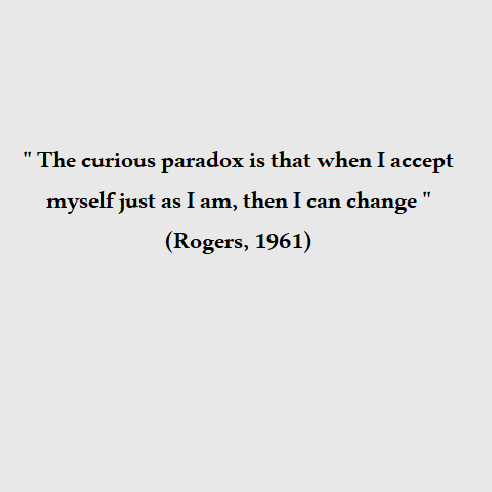Dr. Tom's Coaching Tips
Coaching as a Journey of Solving the Puzzle of Self-Awareness
The journey of coaching someone can be likened to solving a complex puzzle, where the coachee's self-awareness is the key to unlocking their true potential. As a coach, your role is to guide your coachee in the process of understanding themselves better, and helping them uncover their strengths, weaknesses, and inherent qualities that could be hindering or promoting their progress. The beauty of the coaching journey lies in the fact that every individual is unique, making each puzzle a new and exciting challenge.
As a coach, your role is not to solve the puzzle for your coachee but to provide them with the necessary tools and guidance to help them unravel it themselves. Coaching pioneer Sir John Whitmore emphasized that "coaching is unlocking a person's potential to maximize their own performance. It is helping them to learn rather than teaching them" (Whitmore, 2009). By fostering self-awareness and empowering coachees to take charge of their personal and professional growth, you are not only solving the puzzle, but you are also giving them the ability to tackle future challenges with confidence and self-reliance.
All of this emphasises that a coach must be present, compassionate, and foster trust and safetyin order to bring out the vulnerability of theircoachee. They must believe in the potential that the coachee can create new awareness and achieve the results that they are looking for.
- References: Rogers, C. R. (1961). On becoming a person: A therapist's view of psychotherapy. Houghton Mifflin.
- Whitmore, J. (2009). Coaching for performance: GROWing human potential and purpose. Nicholas Brealey Publishing.
The Art of Active Listening: Becoming the Mirror for Your Coachee's Growth
Imagine a cat looking into a mirror and seeing a powerful lion reflected back. This image aptly illustrates the role of a coach in helping their clients recognize their potential and strengths. As a coach, one of the most critical skills to cultivate is active listening. Active listening allows you to provide a mirror for your coachee, helping them see themselves more clearly and develop the confidence and self-compassion needed to work hard and achieve their desired results. In this blog post, we will explore what it means to be an active listener as a coach and how you can master this invaluable skill.
In the context of coaching, active listening enables you to :
- Provide a mirror: By listening attentively and asking clarifying questions, you can help your coachee gain insights into their thoughts, feelings, and behaviors. This process facilitates self-awareness and a clearer understanding of their strengths and areas for growth (Stober & Grant, 2006).
- Recognize potential: Active listening allows you to identify the coachee's strengths and the areas where they excel. By pointing these out, you help them recognize their potential and boost their confidence.
Validate their experiences: Acknowledging and validating your coachee's experiences demonstrates empathy and understanding, which can be transformative in the coaching relationship (Whitmore, 2009).
Lorem ipsum dolor sit amet, consectetur adipiscing elit, sed do eiusmod tempor incididunt ut labore et dolore magna aliqua. Ut enim ad minim veniam, quis nostrud exercitation ullamco laboris nisi ut aliquip ex ea commodo consequat. Duis aute irure dolor in reprehenderit in voluptate.
So how do you cultivate your own ability to listen actively? Here are some skills to work on that will make you a better active listener :
- Be fully present: Give your coachee your undivided attention, and avoid distractions. Maintain eye contact, and be mindful of your body language to show that you are engaged and receptive (Egan, 2010).
- Reflect and paraphrase: Summarize the coachee's message in your own words to show that you are trying to understand their perspective. This also helps to ensure that you've accurately grasped the information they're sharing (Hargie, 2011).
- Ask open-ended questions: Encourage your coachee to explore their thoughts and feelings by asking open-ended questions that cannot be answered with a simple "yes" or "no" (Whitmore, 2009).
- Offer affirmations: Provide positive feedback and reinforcement to highlight your coachee's strengths and achievements, helping them see the "lion" within themselves (Rock, 2006).
- Be patient and empathetic: Allow your coachee the time and space to express themselves without judgment. Respond with empathy and understanding, validating their emotions and experiences (Rogers, 1957).
Active listening is a powerful coaching tool that allows you to serve as a mirror for your coachee, helping them see themselves more clearly and recognize their potential. By practicing active listening, you can foster a trusting and supportive coaching relationship, enabling your coachee to develop the confidence and self-compassion needed to achieve their goals. Remember, as a coach, you play a pivotal role in helping your coachee transform from a timid cat into a fearless lion.
References
- Egan, G. (2010). The Skilled Helper: A Problem-Management and Opportunity-Development Approach to Helping. Cengage Learning.
- Hargie, O. (2011). Skilled Interpersonal Communication: Research, Theory, and Practice. Routledge.
- Rogers, C. R. (1957). The Necessary and Sufficient Conditions of Therapeutic Personality Change. Journal of Consulting Psychology, 21(2), 95-103.
- Rock, D. (2006). Quiet Leadership: Six Steps to Transforming Performance at Work. HarperCollins.
- Stober, D. R., & Grant, A. M. (2006). Evidence-Based Coaching Handbook: Putting Best Practices to Work for Your Clients. John Wiley & Sons.
- Whitmore, J. (2009). Coaching for Performance: GROWing Human Potential and Purpose.
- The Principles and Practice of Coaching and Leadership. Nicholas Brealey Publishing.




